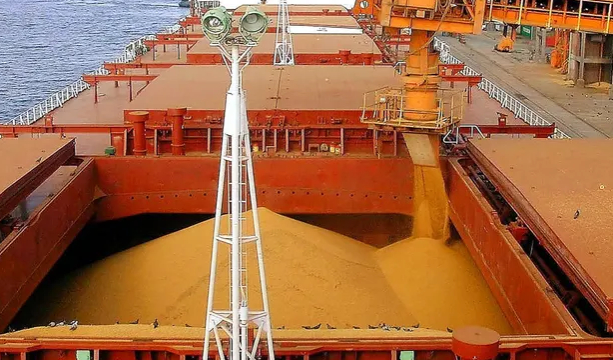June 2, 2025 | 14:02 GMT +7
June 2, 2025 | 14:02 GMT +7
Hotline: 0913.378.918
June 2, 2025 | 14:02 GMT +7
Hotline: 0913.378.918

Transporting food produces an estimated 3bn tonnes of greenhouse gas emissions each year, a new study suggests. Photo: Orlando Kissner/AFP/Getty Images
Transporting food from where it is produced to our dinner plates creates at least triple the amount of greenhouse gas emissions as previously estimated, a new study suggests.
So called “food miles” are likely responsible for about 6% of the world’s greenhouse gas emissions, the authors of the study found after calculating that 3bn tonnes of CO2-equivalent was produced in transporting food for human consumption each year.
Scientists who carried out the research, which analysed 74 countries and regions and 37 different types of food, found richer countries accounted for 46% of the emissions from food miles but just 12.5% of the world’s population.
Australian authorities to buy out fisheries, citing climate crisis
Fruit and vegetables had the highest food miles emissions because they often needed to be refrigerated and consumers demanded out-of-season foods.
The University of Sydney’s Prof David Raubenheimer, a co-author of the study published in the journal Nature Food, said research on making food production more sustainable had tended to focus on comparing plant-based diets to meat.
“We tend to interpret information around us in simplistic terms, like ‘meat is bad and vegetables are good’ but we wanted a much more comprehensive picture,” he said.
“Our study shows that in addition to shifting towards a plant-based diet, eating locally is ideal, especially in affluent countries.”
Study leader Dr Mengyu Li, also of the University of Sydney, said when food miles were added to emissions from land use, production and methane from cattle, about 30% of the world’s greenhouse gas emissions were linked to food production.
“Food transport emissions add up to nearly half of direct emissions from road vehicles,” she said.
While meat production emits 2.8bn tonnes CO2-e, which is seven times as much as fruit and vegetables, the emissions from food miles for meat was only 110m tonnes globally.
This compared to 1.06bn tonnes for fruit and vegetables, with the second highest emitting food group being cereals and flour.
The global total of 3bn tonnes of CO2-e related to food miles was between 3.5 and 7.5 times higher than previous estimates, the authors said.
As well as calculating the emissions from moving the food to the consumer, the study also included the emissions from inputs used to produce the food. For example, the calculations would include emissions from grain that is grown and then transported to feed animals.
About 1.7bn tonnes CO2-e of emissions came from moving food within countries, with 1.3bn tonnes coming from international transportation.
Raubenheimer said supply of food was driven by demand and if consumer attitudes changed this could “reap environmental benefits on the grandest scale”.
“One example is the habit of consumers in affluent countries demanding unseasonal foods year-round, which need to be transported from elsewhere,” he said.
Total emissions from fruit and vegetables were high because of the higher distances travelled, and the fact that humans eat a lot of them.
He said a next step was to use the study findings to build a more detailed picture of the impacts of different diets – on a societal and individual level – on food mile emissions.
But he said a good rule was that if all the food you bought was produced locally, then less meat and more fruit and vegetables would be linked to less emissions.
But if a plant-based diet included lots of imported and out-of-season produce, this would push emissions higher.
“Eating local seasonal alternatives, as we have throughout most of the history of our species, will help provide a healthy planet for future generations,” he said.
Options for richer countries to reduce emissions included cleaner energy sources for vehicles and providing incentives to use production and distribution methods that cut emissions.
(The Guardian)

(VAN) Vikas Rambal has quietly built a $5 billion business empire in manufacturing, property and solar, and catapulted onto the Rich List.

(VAN) Available cropland now at less than five percent, according to latest geospatial assessment from FAO and UNOSAT.

(VAN) Alt Carbon has raised $12 million in a seed round as it plans to scale its carbon dioxide removal work in the South Asian nation.

(VAN) Attempts to bring down the price of the Japanese staple have had little effect amid a cost-of-living crisis.

(VAN) Fourth most important food crop in peril as Latin America and Caribbean suffer from slow-onset climate disaster.

(VAN) Shifting market dynamics and the noise around new legislation has propelled Trouw Nutrition’s research around early life nutrition in poultry. Today, it continues to be a key area of research.

(VAN) India is concerned about its food security and the livelihoods of its farmers if more US food imports are allowed.